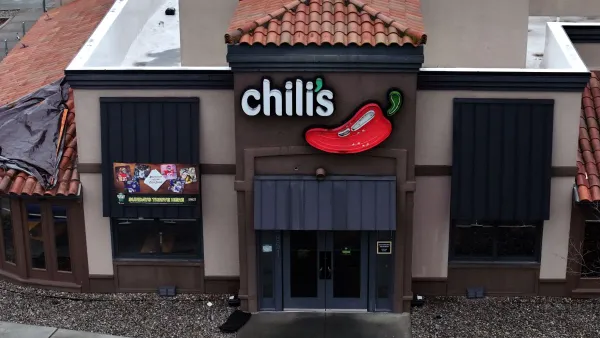Dive Brief:
- The U.S. Centers for Disease Control and Prevention is warning consumers, restaurants and retailers not to eat, serve, or sell romaine lettuce. The CDC's Food Safety Alert issued Tuesday said the agency, along with the Food and Drug Administration and public health and regulatory officials from several states and Canada, are investigating a multistate outbreak of E. coli infections linked to the product.
- According to a CDC media statement, 32 illnesses from 11 states have been reported in connection with the outbreak, 13 people have been hospitalized, and one person had developed a serious type of kidney failure known as hemolytic uremic syndrome (HUS). The Public Health Agency of Canada reported 18 E. coli illnesses were being investigated in Ontario and Quebec, six people had been hospitalized and one had developed HUS.
- Those sickened in the U.S. reported their illnesses started between Oct. 8 and Oct. 31, the CDC noted. They were infected with E. coli bacteria having the same DNA fingerprint as the strain isolated from those sickened in a 2017 outbreak linked to leafy greens in this country and to romaine lettuce in Canada. However, the CDC said this latest outbreak is not related to the recent multistate outbreak of E. coli infections linked to romaine lettuce from Arizona. That outbreak — which the CDC said was believed to be over in late June — sickened 210 people from 36 states, hospitalized 96 and was associated with five deaths.
Dive Insight:
While the CDC hasn't said all romaine lettuce is contaminated with E. coli bacteria, the agency also doesn't know where, when or how the problem occurred. So, in an effort to be as prudent as possible, the CDC is telling consumers to get rid of any romaine lettuce, no matter what form it's in and regardless of origin.
"This advice includes all types or uses of romaine lettuce, such as whole heads of romaine, hearts of romaine, and bags and boxes of precut lettuce and salad mixes that contain romaine, including baby romaine, spring mix, and Caesar salad," the agency recommended. "If you do not know if the lettuce is romaine or whether a salad mix contains romaine, do not eat it and throw it away."
FDA Commissioner Scott Gottlieb told The Washington Post the upcoming Thanksgiving holiday was on officials' minds as they worked to get the outbreak information out.
"I think we felt increased pressure to try to communicate earlier and more substantively with the public given that we know people are going to sit down for holiday meals," he said.
The FDA said in a release the agency has been closely working with the leafy greens industry and state and federal officials to "implement safety practices that can help further reduce the risk of these types of outbreaks." The FDA is also starting a special sampling and testing regime for romaine lettuce to detect contamination throughout the marketplace.
In a statement released Tuesday, the California Leafy Greens Marketing Agreement said it is relying on producers and retail and restaurant customers to support government health advisories. The group urged an industry-wide voluntary withdrawal of all romaine currently in marketing channels and held in inventory.
"Food safety is our top priority. We must take swift action to protect consumers by stopping shipment of romaine lettuce and withdrawing any product that has been shipped to retail stores or restaurants," the LGMA said. "No one wants to get to the bottom of how these outbreaks are occurring faster than the producers of leafy greens. We absolutely must do everything possible to stop recurring outbreaks. We owe this to those whose lives have been tragically impacted by this outbreak and to all our consumers who trust us to grow safe food for their families."
Since it's still not clear how this latest contamination occurred — and the FDA said it doesn't have sufficient traceback information to request a recall. No specific producers have been identified and no recalls have yet been announced. The most recent E. coli outbreak associated with romaine lettuce was linked to contamination from irrigation canal water samples in the Yuma area, the FDA found. This one could be from another source and area entirely, even though it feels a bit like déjà vu all over again.
Until there's more information available, there isn't much producers and retailers can do besides toss out the product and cope with the loss. With repeated outbreaks linked to romaine lettuce, consumers likely feel justified in no longer buying or ordering it regardless of source. It's possible the FDA's new sampling and testing program will help, but in the meantime, the best course of action is doing without romaine lettuce until the problem is identified and corrected for the long term. At this point, that goal seems a long way off.













